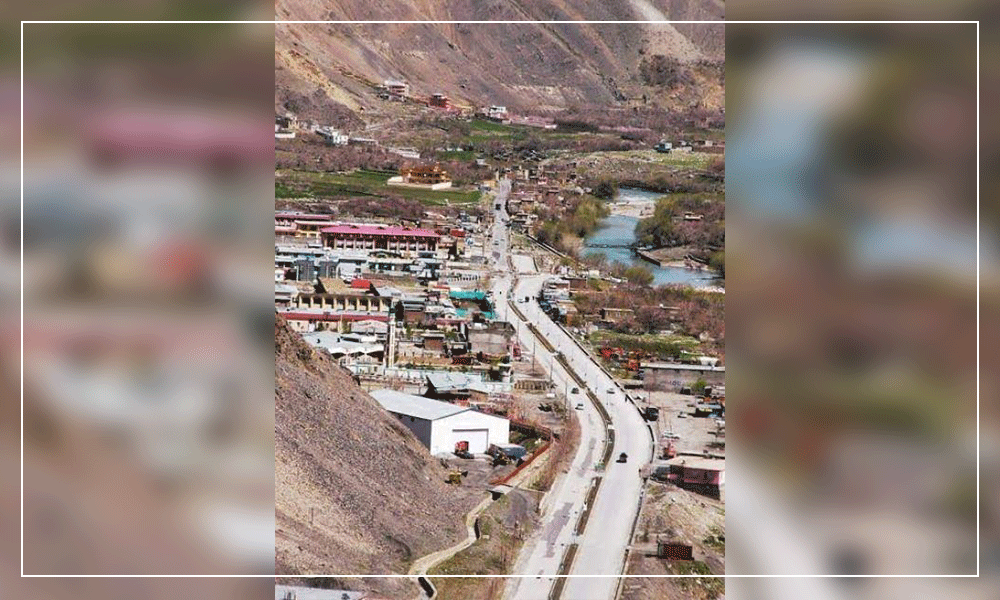PARAKH (Pajhwok): Conflicts are still being resolved through mediation of religious scholars and tribal elders in central Panjshir province and the ancient method can also solve issues on national level, some residents say.
Such gatherings of Ulema (religious scholars) and tribal elders for solution of disputes are a historic practice all over Afghanistan.
Some religious scholars and tribal elders of Panjshir told Pajhwok Afghan News conflicts among the people in the province are still mostly resolved through such meetings.
Such cases are referred to judicial authorities when tribal elders and scholars fail to solve them or if their decision is rejected by any of the conflicting parties.
Maulavi Mohammad Nazir Mati, a religious scholar of Pariyan district, who takes part in such gatherings, told Pajhwok the local government authority used to refer most of the disputes to the elders’ and scholars’ councils for solution.
He says the government intervenes in such cases or disputes only if the Ulema and other tribal elders fail to solve a dispute among the people.
Mati said the easier way to solve a dispute is through the council of tribal elders than the government.
Mohammad Akbar, another tribal elder of Rukha district, corroborated Mati’s views and said: “The ancient method of resolving conflicts through scholars and elders among the people should be kept alive, it is better not to forget this ancient method in solving national issues as well”.
“A final decision is usually made and every party can comfortably share their words and majority of the people delegate their authority to religious scholars as well”.
Rohul Amin Rahimi, a tribal elder of Rukha district and the deputy of tribal council, said majority of disputes among the people were solved by the councils of elders and religious scholars or even the council of youths during the time of previous government and the current government as well.
According to Rahimi, if local elders cannot solve a dispute, it is then referred to the council of religious scholars, but if the religious scholars also fail to solve the dispute, then it is referred to the local government’s authority.
Rahimi says religious scholars and tribal elders can play important role in resolving the country’s major issues. Scholars and tribal elders should also play their role at the national level in order to unite the people because divisions among the people cause big problems in the country, he adds.
He asked officials of the Islamic Emirate (IE) to encourage “disgruntled factions” to move forward through discussions and to eliminate differences.
He also insisted on solving disputes through Jirgas (tribal councils). “Tribal Jirgas have a long history in the country and the Loya Jirga can still be the solution to the country’s current problems as different ethnic groups can participate in its decision”.
Mohammad Sabir Daneshjo, another tribal elder, believes that tribal Jirgas are better platform for solving disputes.
He said: “The meetings of well-known people to solve disputes are a facility for the government, such meetings can solve everything from small issues to big issues at the country level”.
According to Daneshjo, Afghanistan will achieve prosperity once disputes are reduced and disputes can reduce when the people can see their political future bright.
He also asked the opponents of the IE to discuss their demands through civil manner.
Abdul Ahad Ahadi, a tribal elder from the provincial capital, said the people of Panjshir province traditionally solved their disputes through the councils and such disputes were referred to the government authorities only if the tribal councils failed to reach a decision.
Ahadi said: “We have come to the conclusion that council meetings are solution to any kind of conflict, our people have embraced this tradition, the secret of the success is to listen to the wishes of each other and implement them”.
According to Ahadi, by solving conflicts, the people have shouldered a part of the government’s work and such actions are a sort of facility for the people too.
MaulaviNasrullahMalikzada, the head of Information and Culture Department of Panjshir, said in Panjsher like many other provinces conflicts between the people were solved by tribal elders and religious scholars and there was no need for the government to interfere in such cases.
He said the government used to interfere in such cases only if the conflicting parties resorted to violence and indulged in fighting or they themselves refer their case to the government.
Addressing those dissatisfied with the current government, Malikzada said there was no excuse for war in the country and that everyone could raise their demands peacefully, not through violence and taking up arms.
He added the people of Afghanistan could not afford another war as the country needed development and Afghans must join hands to reach this goal.
aw/ma








GET IN TOUCH
NEWSLETTER
SUGGEST A STORY
PAJHWOK MOBILE APP